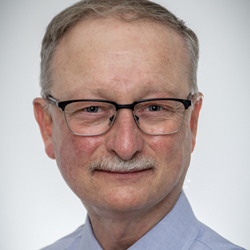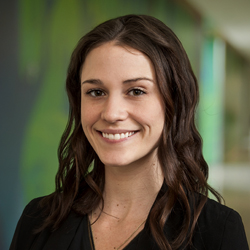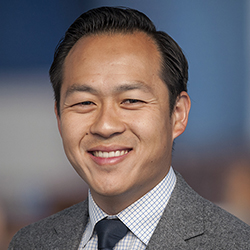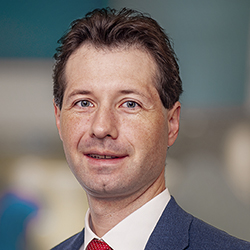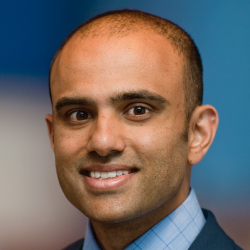Renovascular Hypertension Program
-
Refer a patient
At Seattle Children’s, we are committed to partnering with referring physicians to determine if your patient would benefit from seeing one of our Renovascular Hypertension nephrologists or interventional radiologists.
If you are a provider and wish to schedule a phone consult with the following Renovascular Hypertension specialists, email:
If imaging studies (CT, MRI, etc.) have been done, please upload to eMix, or mail a disk to:
Department of Radiology, File Room
Seattle Children’s Hospital
4800 Sand Point Way NE
Seattle, WA 98105- For urgent referrals, please call the main operator at 206-987-2000, and ask for the nephrologist on call.
-
Location
We provide our full range of renovascular hypertension services at our hospital campus in Seattle.
Your child may also receive follow-up care for their hypertension at one of our regional sites after they have undergone interventional radiology or surgical treatment.
Renovascular hypertension is high blood pressure due to narrowing of the arteries that carry blood to the kidneys (called renal artery stenosis). When the kidneys are getting less blood, they respond by sending signals to increase the body’s blood pressure to get more blood flow to the kidney. It is a serious and potentially life-threatening condition that requires coordinated, personalized and expert care.
At Seattle Children’s Renovascular Hypertension Program, we treat the whole patient, not just their illness. Our team of nephrologists, interventional radiologists, surgeons and nurses works together collaboratively to provide expert care in a compassionate, healing environment.
Why Choose Seattle Children’s Renovascular Hypertension Program?
Renovascular hypertension is a rare and serious condition that requires the expertise and care of a team of pediatric specialists who are highly skilled in treating vascular problems affecting the kidneys. Our team works with you to provide complete care for your child and family. We tailor our expert care to meet your child’s unique health needs.
Only a handful of hospitals in the nation have the expertise to successfully treat renovascular hypertension.
Conditions We Treat
Renovascular hypertension may be associated with different medical conditions. At Seattle Children’s Renovascular Hypertension Program, we treat children with the following conditions that may lead to renovascular hypertension:
-
Alagille syndrome
Alagille syndrome is a genetic disorder that causes reduced bile flow because there are too few bile ducts inside the liver. Some individuals may develop renal artery disease with narrowing of vessels and elevation of the blood pressure.
-
Fibromuscular dysplasia
Fibromuscular dysplasia is a condition that causes narrowing of the medium-sized arteries in the body. Reduced blood flow from narrowed arteries to the organs they supply (like the kidneys) can affect their function.
-
Midaortic syndrome
Also known as middle aortic syndrome, midaortic syndrome is a narrowing of the middle parts of the aorta where it runs through the chest and abdomen area. The aorta is the main artery off the heart that delivers oxygen-rich blood throughout the body. Blood flow to the kidneys is impaired due to the narrowing of the aorta or the renal arteries.
-
Takayasu arteritis
Takayasu arteritis is a rare disorder that causes inflammation of the blood vessels (vasculitis). The inflammation damages the large artery (called the aorta) that carries blood from your heart to the rest of your body and its main branches.
-
Tuberous sclerosis
Tuberous sclerosis is a rare genetic disease that causes non-cancerous (benign) tumors to grow in many parts of the body. Tumors may grow in the renal artery, blocking blood flow to kidneys.
-
Williams syndrome
Williams syndrome is a genetic condition that is present at birth and is marked by several medical complications, including problems with kidney structure and/or function. Narrowing of the aorta and/or renal arteries may develop during childhood.
Services We Provide
The multidisciplinary team at Seattle Children’s Renovascular Hypertension Program works closely with our colleagues from the Pediatric Hypertension Clinic to treat children with high blood pressure.
In the Renovascular Hypertension Program, we provide comprehensive care to our young patients with vascular blockages to the kidneys. Depending on your child’s unique needs, we may call upon the Pediatric Hypertension Clinic to help provide your child with the services needed to treat and manage their condition.
-
Nutritional evaluation and counseling
Our registered dietitians can help you, your child and your family learn about foods to help control blood pressure meet your child’s nutritional goals.
-
Ambulatory blood pressure monitoring (ABPM)
An ambulatory blood pressure monitor is a small machine worn on the body that takes your child’s blood pressure every 15 to 30 minutes during the course of a normal day. This information can help your child’s doctor see if treatment is working, and help you and your child manage hypertension.
-
Home blood pressure monitoring
Our team can help you learn how to check and monitor your child’s blood pressure at home. Keeping a record of blood pressure measurements helps your child’s doctor see how well treatment is working and helps you manage your child’s health.
-
Medication management
If your child needs medicines for high blood pressure, our team’s experience with the latest medicines allows us to know how to adjust doses and change medicines to help make sure your child gets the best results.
Who’s on the team?
At Seattle Children’s Renovascular Hypertension Program, your child will get care from a multidisciplinary team, including doctors in Nephrology, Interventional Radiology and Surgery. We work together closely to give your child the best treatment.
Providers in the Renovascular Hypertension Program include the following specialists:
Team
Nephrology
Nephrologists are doctors who specialize in treating diseases of the kidneys — the organs that help filter waste out of the blood and make urine. Seattle Children’s is a national leader in caring for babies, children and teens with kidney conditions, including the most complex disorders.
Interventional radiology
Interventional radiologists specialize in minimally invasive surgical procedures to find and correct problems, often deep inside the body, without the need for open surgery. They use imaging to guide their work, such as ultrasound, CT (computed tomography) scan or fluoroscopy.
Diagnostic radiology
Diagnostic radiologists specialize in using ultrasound, MRI (magnetic resonance imaging), and CT to diagnose blood vessel and organ problems deep inside the body. They create images that can be used by the interventional radiologists and surgeons to plan treatment, if necessary.
Surgery
Surgeons provide general and specialized surgical services to babies, children and adolescents. Our pediatric surgeons are national leaders in the use of minimally invasive techniques and can assess whether this type of surgery would be best for your child.
Telemedicine at Seattle Children’s
Your child’s first appointment in our clinic will be in person and take about 90 minutes. Later visits may be offered via telehealth (virtual). Learn more.
Resources
You and your family may find helpful information from the following resources:
- Alagille syndrome: National Institute of Diabetes and Digestive and Kidney Diseases
- Fibromuscular dysplasia: Fibromuscular Dysplasia Society of America
- Neurofibromatosis: Children’s Tumor Foundation, Understanding Neurofibromatosis
- pRVH PCOR: Pediatric Renovascular Hypertension Patient-Centered Outcomes Research
- Takayasu arteritis: Vasculitis Foundation
- Tuberous Sclerosis: Tuberous Sclerosis Alliance
- Williams syndrome: Williams Syndrome Association
Access Additional Resources
Get resources for patients and families, including information on food, housing, transportation, financial assistance, mental health and more.
Paying for Care
Learn about paying for care at Seattle Children’s, including insurance coverage, billing and financial assistance.
